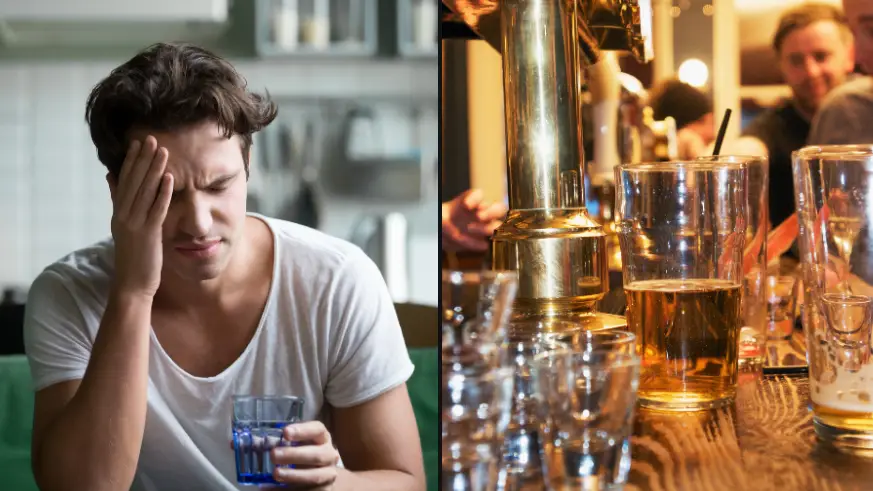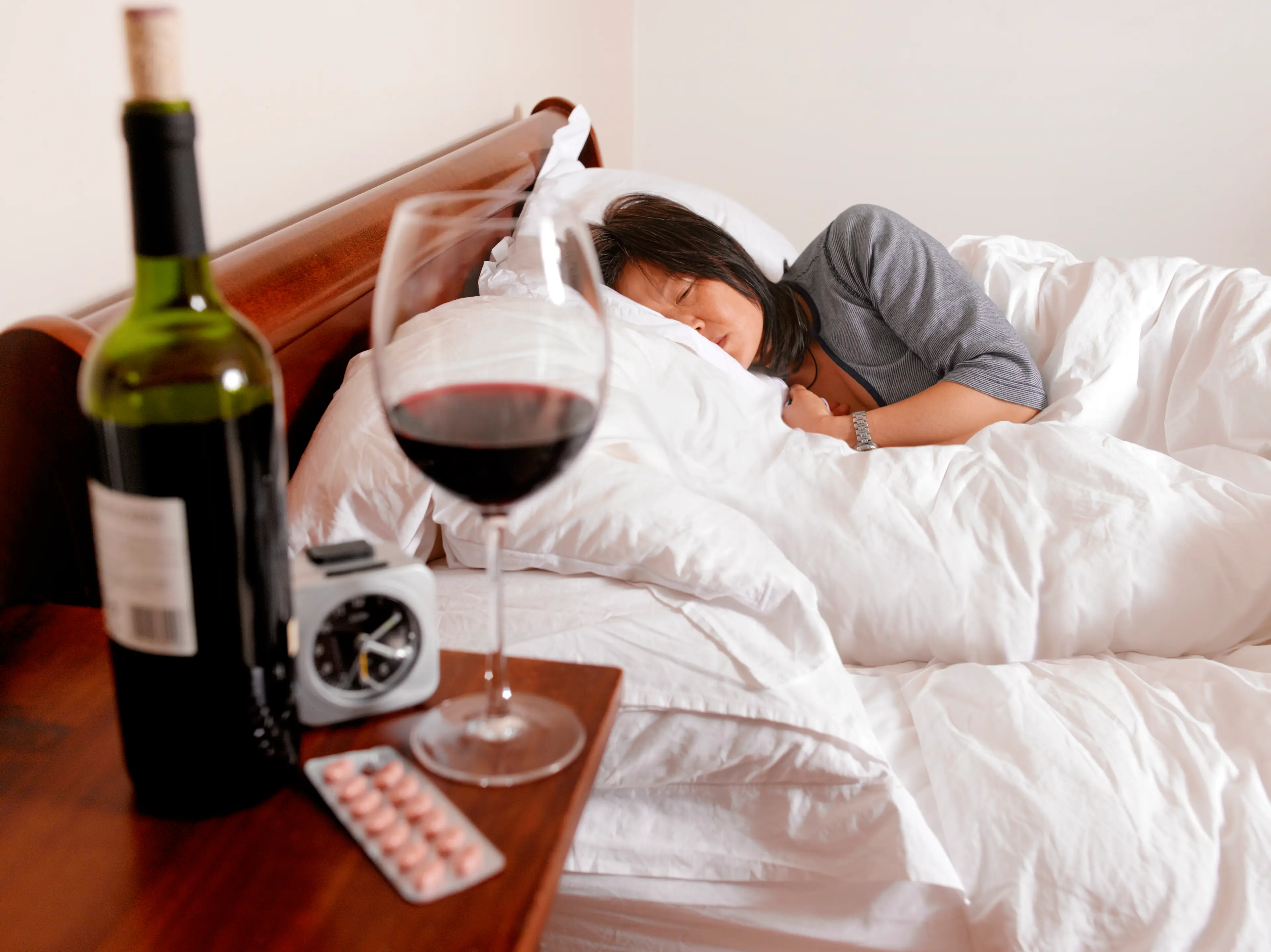
With the festive season officially underway, revellers will soon be splashing out on Bucks Fizz, Bailey's, Mulled Wine, Tia Maria, Eggnog and gin for 'Hot Toddys'.
Naturally, however, with the colossal amount of booze consumed over the Christmas period, comes the expectation of sore heads, aching arms and perhaps a vomit or two.
But one TikTok star is this year making it his aim to raise awareness about what actually happens to the human body to provide the sensation - or should we say, curse - of a hangover.
Advert
Andrew Huberman - an American podcaster and neuroscientist - has left social media users with their minds blown after delving headfirst into the causes and effects of a hideously embarrassing morning after.
"I'd like to talk about a fairy common phenomenon, which is post-alcohol consumption malaise," he told viewers on TikTok this week. "Otherwise known as a hangover.

"A hangover is a constellation of effects ranging from headaches to nausea, to what's sometimes called 'hangxiety', which is anxiety that follows a day of drinking.
"Hangxiety, I think, we can understand physiologically if we think about the process of alcohol intake increasing the amount of cortisol and the ratio of cortisol to some other stress hormones.
"That well explains why some people wake up the day after, or even the day after the day after a night of drinking and feel anxious and not well - and stressed for reasons they don't understand."
Huberman then goes on to explain that fogginess the next day is caused by a lack of high-quality sleep.
"First of all, the sleep that one gets after even just one glass of wine or a beer, is not the same sleep that you get when you don't have alcohol circulating in your body."
He continues: "When one ingests too much alcohol for them, one of the reasons they feel terrible the next day is because their sleep isn't really good sleep."
When it comes to suffering a headache, Huberman explains that this is caused by vasoconstriction - "The constriction of blood vessels that tends to occur as a rebound after a night of drinking."
And whilst he explains that some hangover-suffers opt to take over-the-counter painkillers - such as Advil and Aspirin, the American equivalents to the likes of paracetamol and ibuprofen - he advises drinkers to tread cautiously.

This is because of the debate surrounding the respective negative affects that these painkillers can have on your body, specifically your stomach lining and liver.
However, one thing Huberman is certainly NOT an advocate is the good old 'hair of the dog'.
"There's the lore that one should simply ingest more alcohol," he laughs. "What terrible advice that is. That's just going to delay an even worse hangover."
Topics: Food And Drink, Christmas, Health, Mental Health